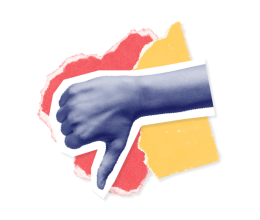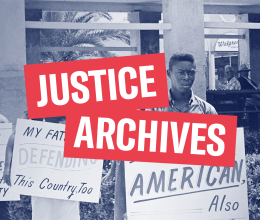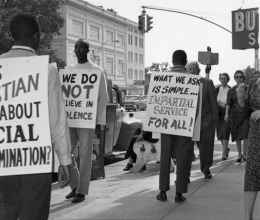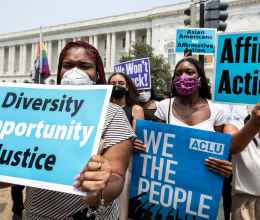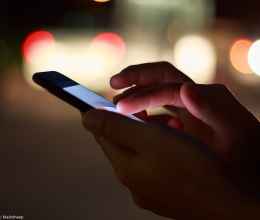
In 1982, Judith Krug co-founded Banned Books Week to combat educational censorship and celebrate intellectual freedom. She was a librarian by training who became a champion for First Amendment rights. Over 40 years later, our progress to expand our literary world and the stories accessible to students is regressing.
Today, book banning is rampant, with Florida as an unapologetic leader, removing an unprecedented number of materials from public schools. Mimicking discriminatory attacks across the state, it is no coincidence that the majority of books at-issue are either written by or portray the lives and experiences of members of the Black, Brown, and LGBTQIA+ communities. Spanning from the delightful tale of two male penguins falling in love and raising a chick at the Central Park Zoo, as described in “And Tango Makes Three” by Justin Richardson and Peter Parnell, to the vibrant picture book titled “I is for Immigrants” by Selina Alko, which celebrates the multifaceted and distinctive experiences of immigrants, to the harrowing but indispensable story that further exposes slavery in the United States, as artfully relayed by Toni Morrison in “Beloved.” This targeted censorship robs students of learning about the authentic experiences that form part of American society.
The significance of educating our youth is paramount. However, the education we provide cannot be manipulated—limited by viewpoint, personal biases, and whitewashing. Instead, students must have the freedom to read and to learn about the real histories and accounts of all people within this nation. As individuals, when we are exposed to a story, regardless of the genre, we tend to compare ourselves to the characters presented. Learning about the lives of others is an essential practice of exploration and empathy, and doing so through books highlights their profound impact.
For young people of color, self-identified members or those exploring their identities within the LGBTQIA+ community, these connections are especially significant for personal development and often serve as a way to escape the harsh realities of today’s world. Like living in a state that repeatedly rejects you because of your race, ethnicity, sexual orientation, gender identity, and/or immigration status—to name a few. Denying youth the ability to learn not only about others, but also themselves is isolating, stigmatizing, and will have harmful effects on them as well as the future of our nation.
While we at the ACLU of Florida are disappointed by our state’s starring role in censorship, we know these are efforts we can resist. In partnership with Democracy Forward and the Southern Poverty Law Center, we are awaiting a court decision for litigation addressing the removal of materials from public schools and the First Amendment restrictions imposed by the Florida government. The lawsuit was filed this June 2024 on behalf of parents of Florida public school students who were denied their First Amendment rights because of a state law that discriminates against individuals who oppose book bans and censorship.
But resistance does not end in the courtroom. We can all fight against censorship. Read a banned book. Start a book club. Create a Little Free Library in your neighborhood. Dedicate yourself to sharing everyone’s stories—this week and every other week.
